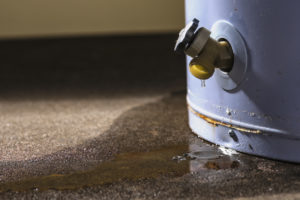 No one wants to deal with winter flood damage. Prevent it by taking these preventative steps.
No one wants to deal with winter flood damage. Prevent it by taking these preventative steps.
Canada’s cold temperatures can wreak havoc on your plumbing system, causing serious flooding. While you can’t control the weather, you can take preventative measures to help avoid any leaks or burst pipes. Here’s a list of ways to prevent winter flood damage.
Common winter problems
As the temperature dips below zero, there are several common problems you’ll want to avoid:
Frozen pipes
Get your plumbing checked before freezing temperatures hit to make sure your pipes are protected. If you check your pipes and find that the system is already frozen, call a professional and do not use your plumbing, as that can cause the pipes to burst.
Broken water heaters
Your water heater typically works harder during the colder months since the water needs to be kept at a certain temperature. If your heater is around 10 years old, or you notice your water isn’t as hot as usual, get the system checked by a professional to avoid any leaks.
Clogged drains
Clogged drains are more likely to happen in the colder months, especially during the holiday season, due to more guests and visitors coming into your home. Clean out your drains before winter hits to avoid any plumbing leaks or floods.
Water line leaks
Water line leaks in the winter can be especially difficult. Older pipes are more likely to leak. Watch out for a frozen line, which can split the pipes. To prevent these issues, check that your water line is well maintained before the weather gets cold.
Burst septic tank
Freezing weather could cause the line from your home to the septic tank to freeze or the tank to burst. Clean out your tank in the summer or fall to prevent this.
Take preventative measures
Other than routinely checking your systems, there are several other steps you can take to avoid winter flood damage:
Make sure your pipes are insulated
Step one of winterizing your house is to wrap a layer of insulation around your pipes. Insulation is usually made of fibreglass or polyethylene, and it helps prevent burst pipes by providing extra protection against the cold.
Let your faucets drip
This may seem counterintuitive, but allowing your faucets to drip in the winter keeps the flow going, which can alleviate pressure that would otherwise build up and cause burst pipes.
Heat your home, even if you’re not there
Don’t turn your heating completely off when going on vacation. This can stop your pipes from freezing. Keeping the temperature above 10 degrees is all that’s needed to keep your pipes warm.
Fix leaks before they get worse
Repair any leaks, no matter how small. Winter is the worst time to ignore a leak. It’s a good idea to check all the areas where you have plumbing running for leaks, such as the backs of cabinets or below your sinks. Keep cabinets open overnight to encourage more heat to reach the pipes.
Keep a cool head
Winter flood damage can be disastrous, which is why taking a few preventative steps in the winter is vital. If you notice any serious leaks or damage while winterizing your home, don’t hesitate to call a professional. It could be the difference between a cozy winter and a burst pipe.
Need a restoration specialist? Touch With Care’s highly experienced team is prepared to act quickly across Toronto and Mississauga. We respond within the hour to limit the possibility of water damage, electrical dangers, the growth of mould and bacteria, and structural harm to your home or business. Contact us when disaster strikes.


